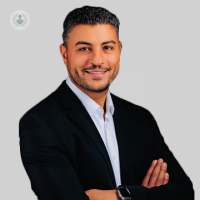The Ross procedure: An alternative aortic valve replacement technique
Written by:The Ross procedure is an alternative aortic valve replacement technique, that offers various different benefits. In his latest online article, leading consultant cardiac and aortic surgeon Mr Ahmed Othman offers his expert insight into this treatment.

Who is a candidate for aortic valve replacement?
Patients who have aortic valve disease significant enough to cause symptoms and/or affect heart function should undergo aortic valve replacement. This procedure is usually a low-risk, technically feasible operation, done in all UK cardiac centres.
What are the different types of aortic valve prosthesis?
Unfortunately, the perfect aortic valve prosthesis does not exist. One type of prosthesis is the mechanical valve. This has good durability but has the downside of patients needing to take life-long anticoagulation medication (blood thinners).
Another type is the bioprosthetic valve (also called the tissue valve or the animal valve). This type of valve has the advantage of not requiring lifelong blood thinners but has a life span of around 15 years after which its function deteriorates.
The other downsides to these types of valves, despite the technical feasibility of the operation itself, are the risk of a clot forming on the valve components and the risk of infection.
The choice between these two valves depends on the age of the patient, lifestyle, occupation and sometimes underlying diseases such as clotting disorders and kidney disease.
The Ross Procedure is a unique alternative substitute to the aortic valve, first done in 1967.
How is the procedure done?
The aortic valve is replaced by the same patient’s pulmonary valve and the pulmonary valve is replaced by a human donor valve (Homograft). It is obviously a more technically demanding operation, done by aortic specialists in centres of expertise. It is offered to patients who are in otherwise good health and relatively young (under 60 years of age).
Why is Ross better than conventional aortic valve replacement?
Despite being more demanding technically, it offers the best of both worlds; it does not require lifelong blood thinning and is a very durable valve.
Studies have shown a lower risk of infection with the Ross procedure, in addition to less risk of reoperation and better overall survival than conventional valve replacement surgery.
Am I suitable for the Ross procedure?
You must be otherwise in good health and relatively young (no older than sixty years of age). There are also anatomical aspects that need to be taken into consideration. These will be looked at via a CT scan or a Cardiac MRI to ascertain whether you are suitable for this operation.
If you would like to book a consultation with Mr Ahmed Othman, you can do so today via his Top Doctors profile.


